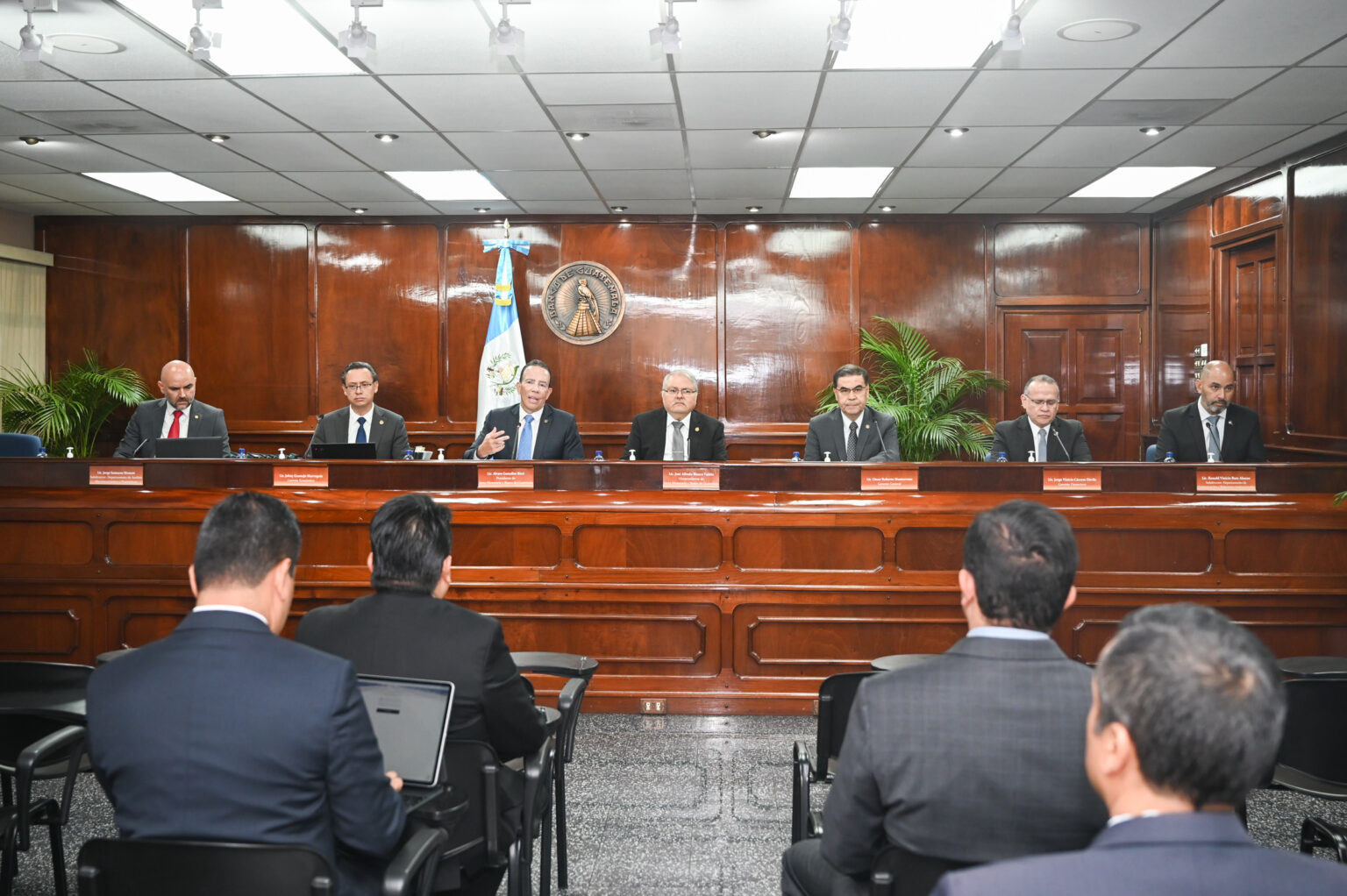Global Courant 2023-05-25 16:00:44
One month before the general elections, the International Monetary Fund (IMF) made official the Chapter IV report for Guatemala, which, while acknowledging the resilience of the economy, at the same time warns about the persistence of certain risks derived from economic problems globally and especially in the United States, which may affect the flow of remittances expected for this year, as well as a drop in international trade.
“The Executive Board of the International Monetary Fund (IMF) concluded the Article IV 1 of 2023 consultation with Guatemala on May 15, 2023 and endorsed the evaluation of the technical staff,” the document indicates.
This annual evaluation consists of a review of the country’s main macroeconomic and fiscal indicators, carried out during visits by a mission appointed for that purpose. Among the variables analyzed are inflation, growth of the economy measured by gross domestic product (GDP), fiscal performance, tax collection, public debt management, as well as the evolution of the national financial system.
The report consists of several pages and was presented in Washington, DC, for which the Guatemalan central bank authorities called a press conference in which they highlighted the resilience of the Guatemalan economy.
the findings
The statement released by the IMF states that “Guatemala’s strong record of prudent macroeconomic policies and large remittance inflows provided the country with great buffers to weather a challenging global environment and tighter global financial conditions. In 2022, Guatemala’s real GDP growth was 4.1 percent (3.4 percent projected in 2023), with a fiscal deficit of less than 2 percent of GDP, driven by the overperformance of tax collections and high commodity prices. import, and the balance of public debt below 30 percent of GDP. Domestic private demand remained strong and bank credit to the private sector grew at double-digit rates.
Inflationary pressures remain high, with April 2023 headline inflation at 8.32 percent. The currency has remained stable and external balances solid, despite a large import bill. The financial sector has proven to be resilient to global financial tightening conditions and to rising domestic interest rates”.
Risk scenario
The report also notes that “the outlook remains broadly positive, but risks remain, and near-term risks relate to an abrupt global economic slowdown, including in the US, which could reduce remittance flows and have Secondary effects on domestic demand and growth in Guatemala.
Increased global market volatility and uncertainty could fuel commodity price volatility and complicate the fight against inflationary pressures, hitting the most vulnerable especially hard. At the same time, the consistent record of economic achievement and prudent policies has served the country well and, if continued, will help further strengthen the economy’s resilience to shocks. Medium-term risks are related to the domestic sphere, and structural deficiencies hamper development prospects.”
The IMF also highlights that “Guatemala continues to be an economy with untapped opportunities; Expanding the implementation of a transformative infrastructure agenda, fostering human capital and social policies, and improving legal certainty are essential to support a sustainable and inclusive growth model in the medium term with higher growth potential. While global prospects are challenging, the current juncture also offers ample opportunities to harness the demographic dividend and accelerate reforms to improve the business climate environment and attract foreign investment.”
Other themes
On the other hand, the report in Chapter IV exposes the need to maintain prudent fiscal policies, as well as strengthen the fiscal framework in the medium term. They stressed that to close the existing social and infrastructure gaps it will be necessary to improve revenue mobilization and the efficiency of spending. “A comprehensive tax reform will be essential in this regard.”
Directors stressed the need to improve the investment framework and expressed interest in PIMA/C-PIMA. They also supported the establishment of a medium-term debt management framework and the development of a secondary market for sovereign debt.
Directors welcomed the recent decisions to increase the policy rate. They noted that further data-based increases may be necessary, emphasizing that monetary policy should continue to focus on keeping inflation expectations anchored and returning headline inflation to the midpoint of the target range. Directors also highlighted the need for further enhancement of the inflation targeting framework and the gradual transfer of market risk management to the private sector, which will support the buffer role of the exchange rate.
As recommendations, the IMF calls for careful monitoring of financial sector risks and continuous efforts to strengthen regulation and supervision. It mentions the approval and implementation of modifications to the banking law and the AML/CFT (Anti-Money Laundering and Counter-Terrorist Financing) law, in line with the standards of the International Financial Action Task Force (GAFI).
In addition, advance in an agenda of structural reforms to increase potential growth and reduce poverty; reduce informality; and reinvigorate the issue of infrastructure, which is of long standing.
Finally, they insisted on the importance of making greater efforts to improve governance and fight corruption, for which they welcomed the interest of the authorities in conducting an in-depth governance diagnosis.
comment on the report
Álvaro González Ricci and Johny Gramajo, president and economic manager of the Bank of Guatemala (Banguat), respectively, explained at a press conference that this evaluation recognizes the resilience of the Guatemalan economy, apart from its strength in the face of external and internal shocks.
“In 2022 the growth of Guatemala’s GDP (with 4.1%) exceeded its potential, which is 3.5%, and the analyzes of the technical teams indicate that the growth rate for this year would be 3.5%, as a central scenario, even indicator for 2024, which means that the Guatemalan economy would be growing this and next year around its potential, which contrasts with what has been observed internationally,” they indicated.
In any case, Guatemala’s position would be referential, as part of a group of small countries that would be showing a positive growth rate.
They also highlighted the dynamism of sending family remittances and the behavior of bank credit to the private sector, which contributed to strengthening private consumption. The flow of family remittances in 2022 reached US$18.40 million, which represented 19% of GDP, and growth was observed in bank credit to the private sector after the pandemic, although a gradual slowdown is expected in both indicators, which has already is being observed.
On the debt, this is at 29.2% with respect to GDP; International Monetary Reserves (IMR) are located at around US$20.5 billion, which is enough to cover seven months of imports, and that has also fostered exchange stability, he explained.
It was highlighted that Guatemala maintains a strategy that seeks to reach investment grade and the country risk agencies have improved the rating as well as the prospects “and Guatemala did not go through the negative perspective when changing steps.
On the subject of inflation, it was announced that a turning point has been observed since March, which indicates that the indicator will begin to decrease, for which 5% is expected by the end of 2023 and 4% by December 2024. , was exposed at the press conference.








